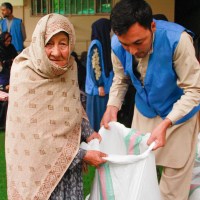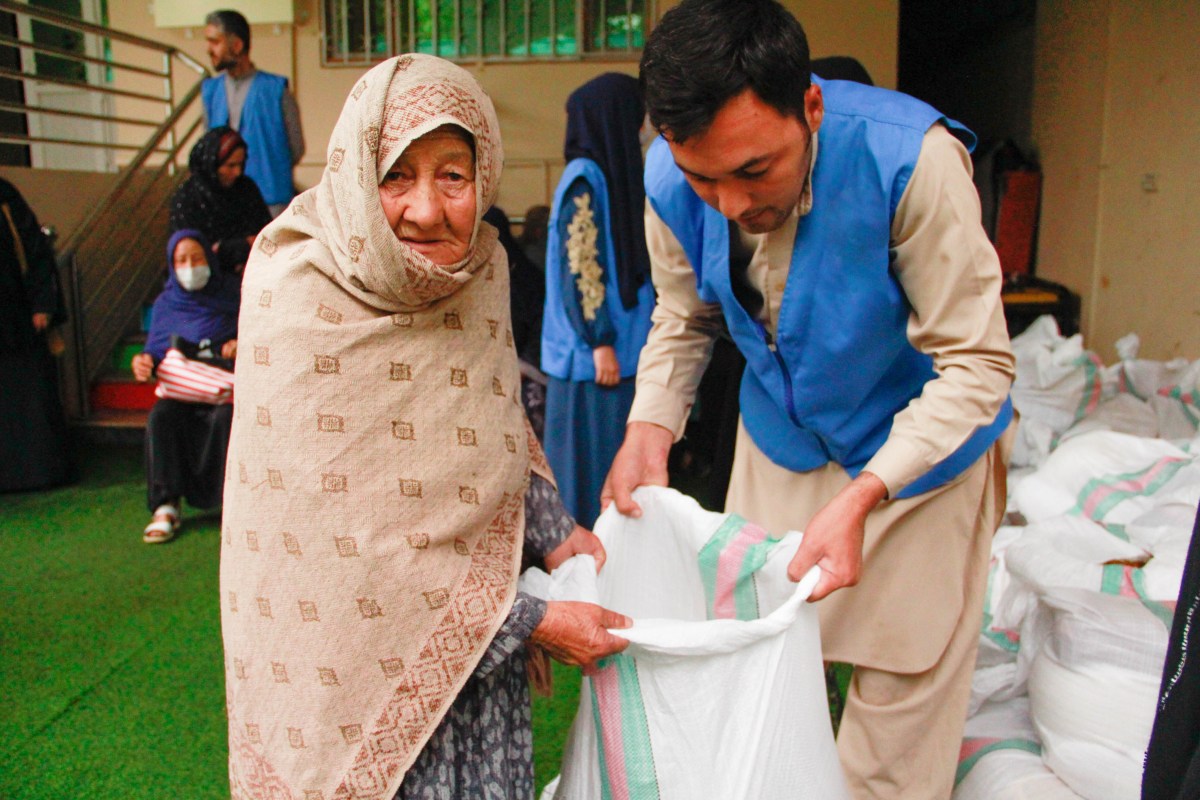What would you do if you couldn’t feed your children? Would you sell your daughter, so she had a better chance at survival? Would you send your son out to work before he finished grade school? These are the choices facing countless Afghan mothers in a place where over 95% of people are food insecure, six million people are at risk of famine, and over 1.1 million children under five are acutely malnourished.
You saw this need and responded. Thanks to you, each month from August, when the project started, to December, we gave 100 families a food pack to meet their basic needs. Over five months, we supported 500 families. Each pack had enough cooking oil, rice, dried beans, sugar, pasta, green tea, and washing powder to help feed a family of seven for a month. One mother told us she and her children hadn’t eaten cooked food for the previous three nights when she received a food pack. Now, she and her family could have hot meals.
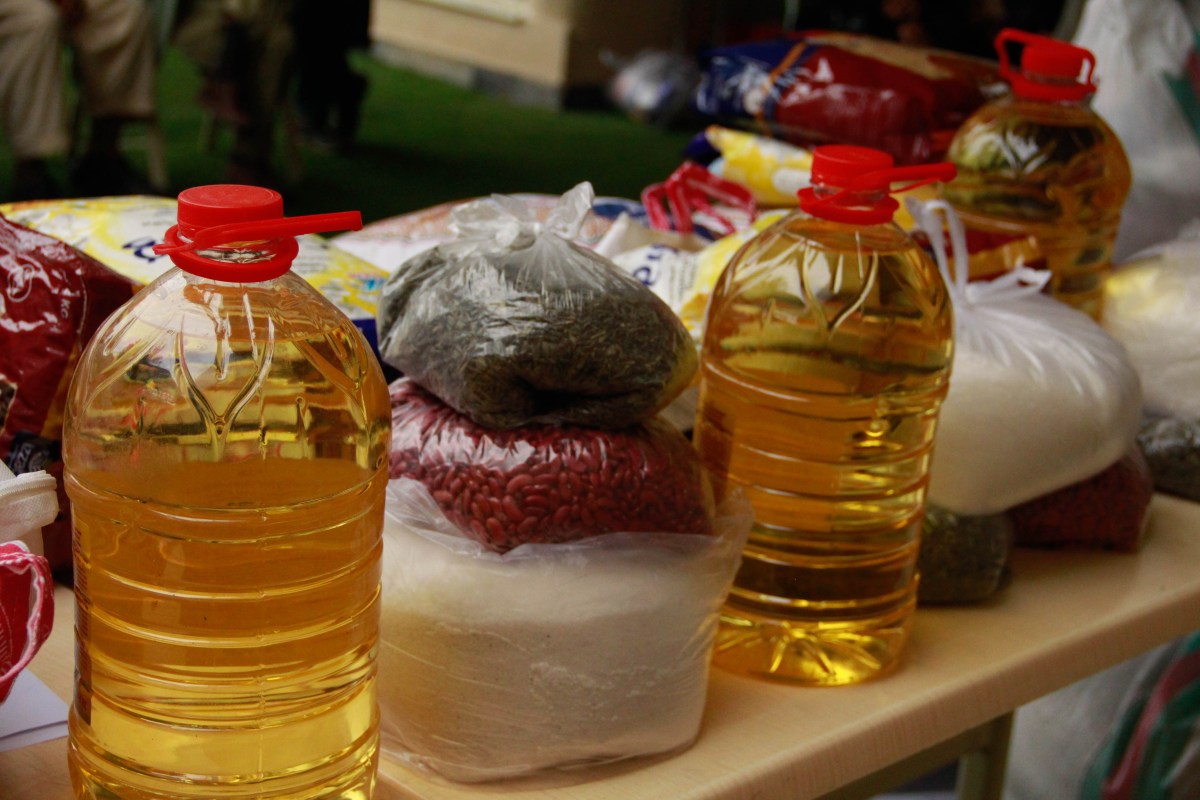
Cooking oil and sugar for the food packs. Photo provided by Sohrab Omar for Preemptive Love. 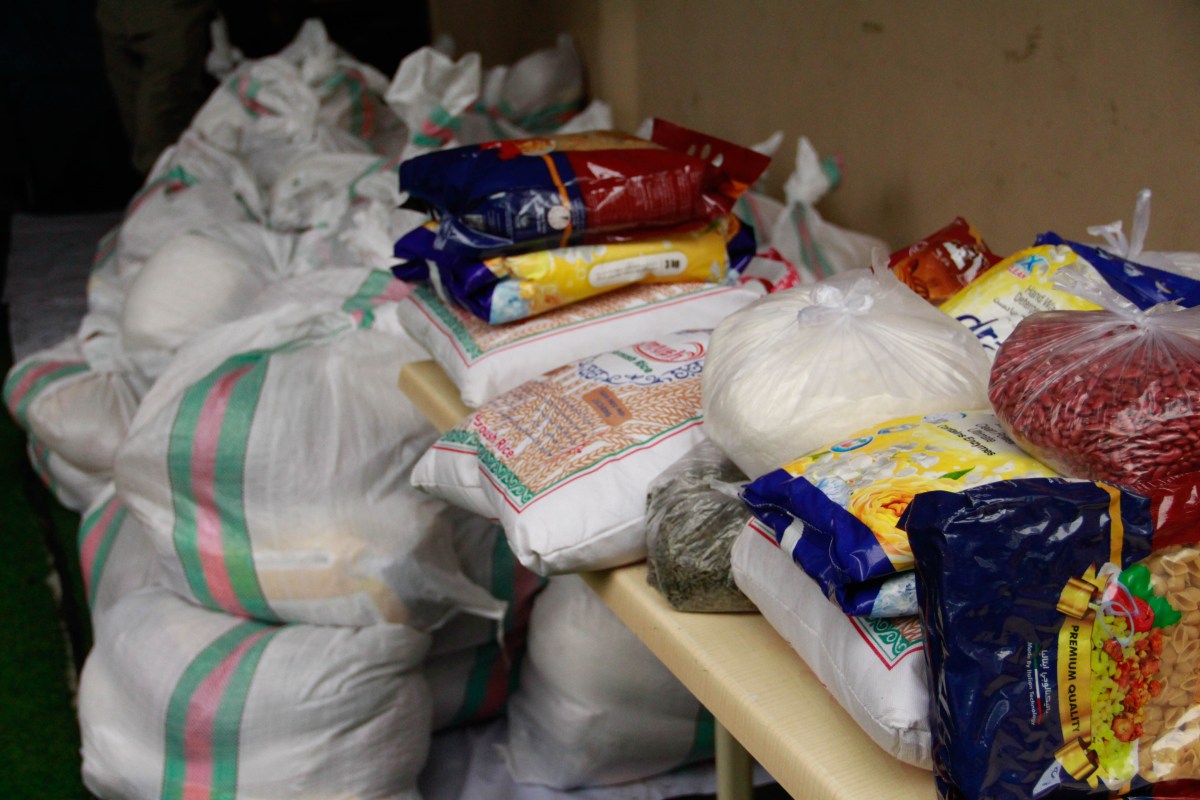
Dried staples to keep families going. Photo provided by Sohrab Omar for Preemptive Love.
There was also a treat in the food packs, which not only brought smiles to many faces, but also supported the local economy. When we implement relief programming, we like to buy our supplies locally to keep local businesses running and local people employed. Because Afghanistan has become increasingly dependent on imports and foreign aid for staples such as wheat flour and cooking oil, we couldn’t source these staples locally. Instead, we employed a local woman to make fresh apple jam for the food baskets. She was the sole breadwinner in her family, with two children to support. Making jam from her home provided her with an income, so now, she is just about back on her feet.
What would you do if you couldn’t feed your children? Would you sell your daughter, so she had a better chance at survival?
Through our partner, we surveyed families from four different communities around Kabul to find those most in need. Many of the families receiving food baskets are female-led households. There aren’t many work opportunities for women in Afghanistan beyond manual jobs such as cooking, cleaning, or doing laundry for other families. And these jobs are poorly paid.
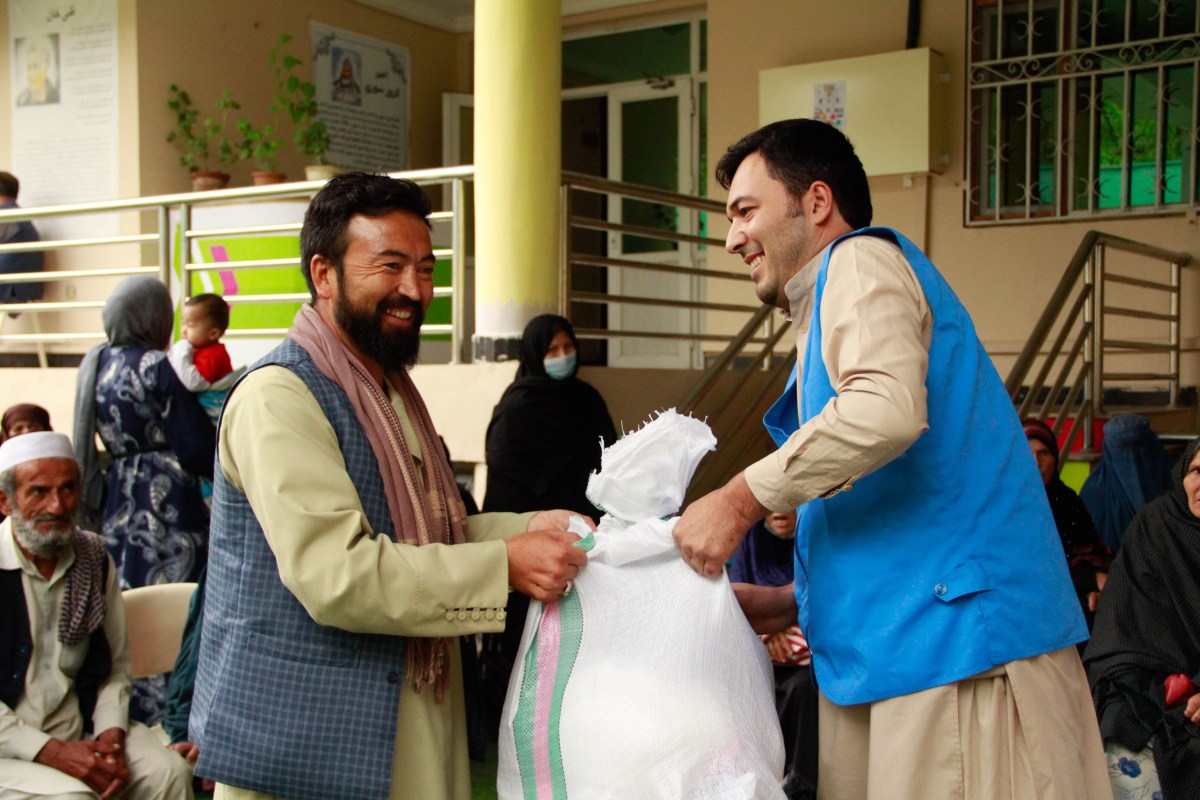
Happy to receive a food pack. Photo by Sohrab Omar for Preemptive Love. 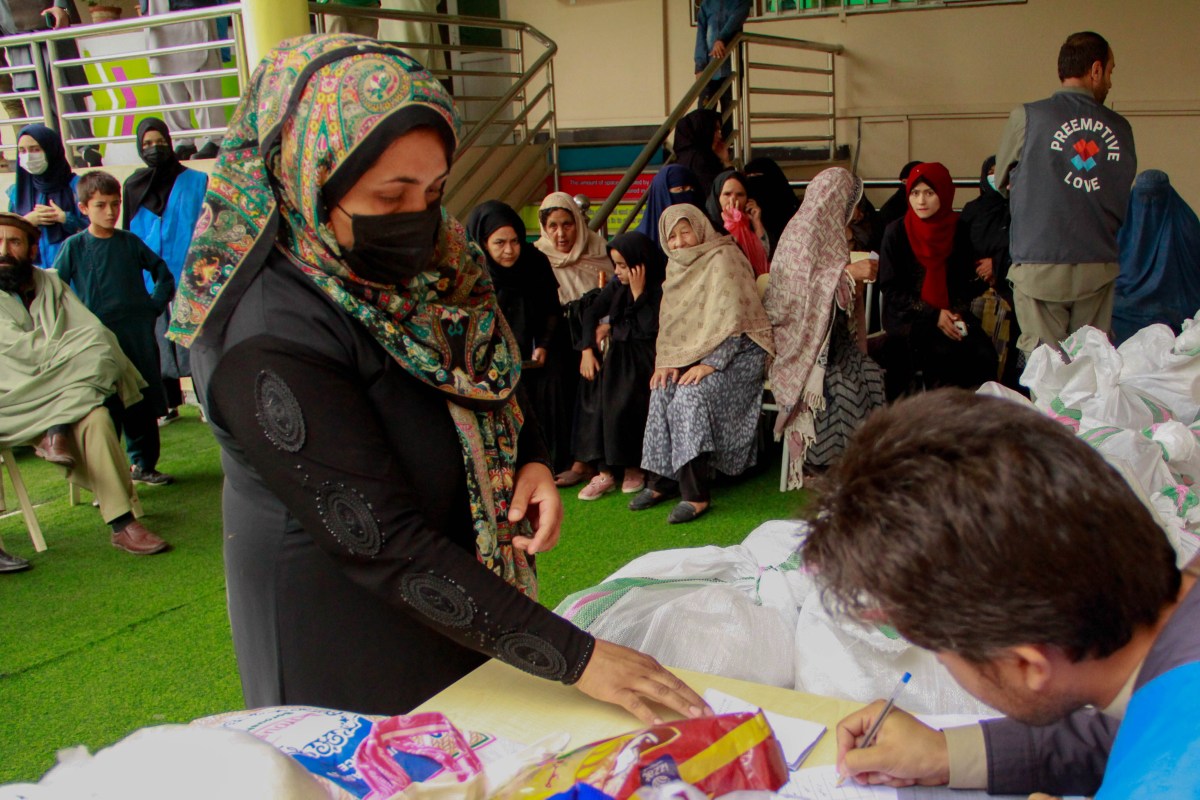
The need is great in Afghanistan. Photo by Sohrab Omar for Preemptive Love. 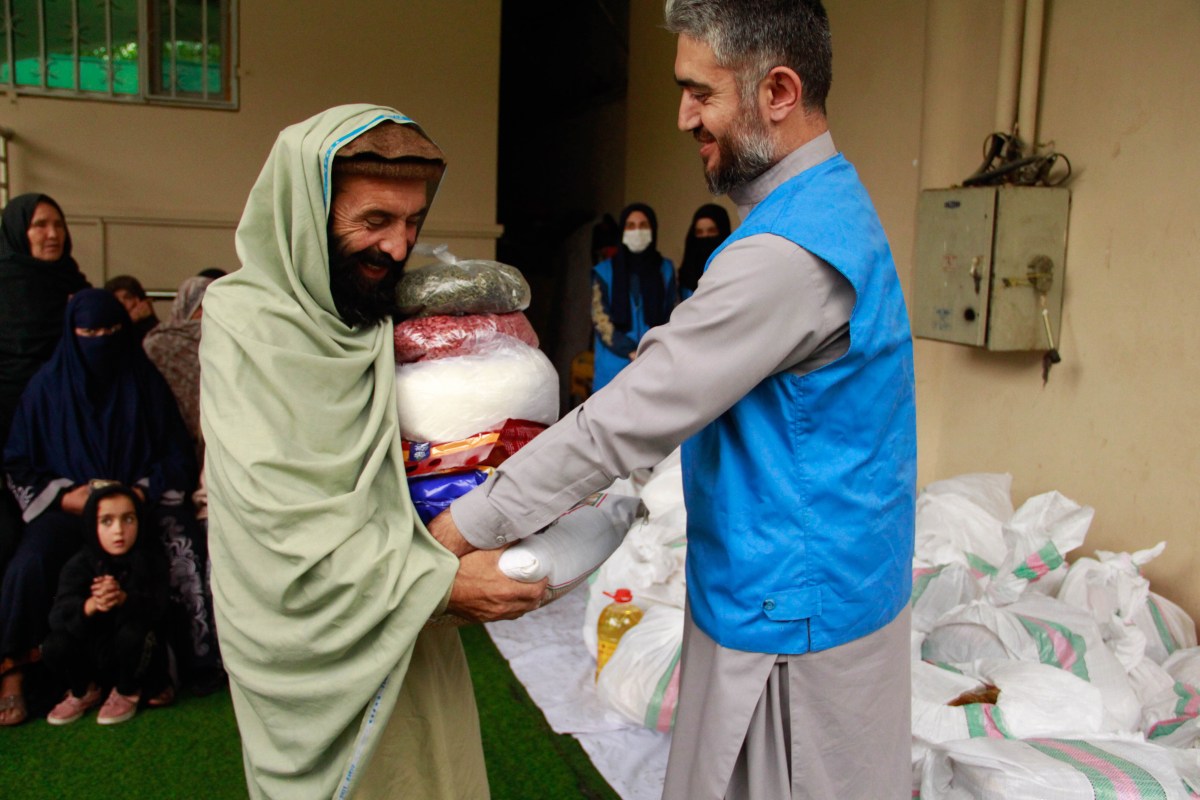
Your generosity makes these smiles happen. Photo by Sohrab Omar for Preemptive Love.
We are forging deep ties with these communities. Some women receiving food packs also sew blankets for us, earning a much needed-income while they work safely from home and take care of their children. Others are participating in our new poultry project designed to give families a source of healthy protein and an income. Yet others send their children to the primary school where we distribute our specially-formulated, meal-sized breakfast cookie so kids can have a nutritious start to the day and stay in school.
Afghanistan’s future is full of challenges. Despite the economic and political chaos, we are committed to implementing relief and stabilization projects to help our Afghan friends. Won’t you join us in making a powerful impact in Afghanistan?

